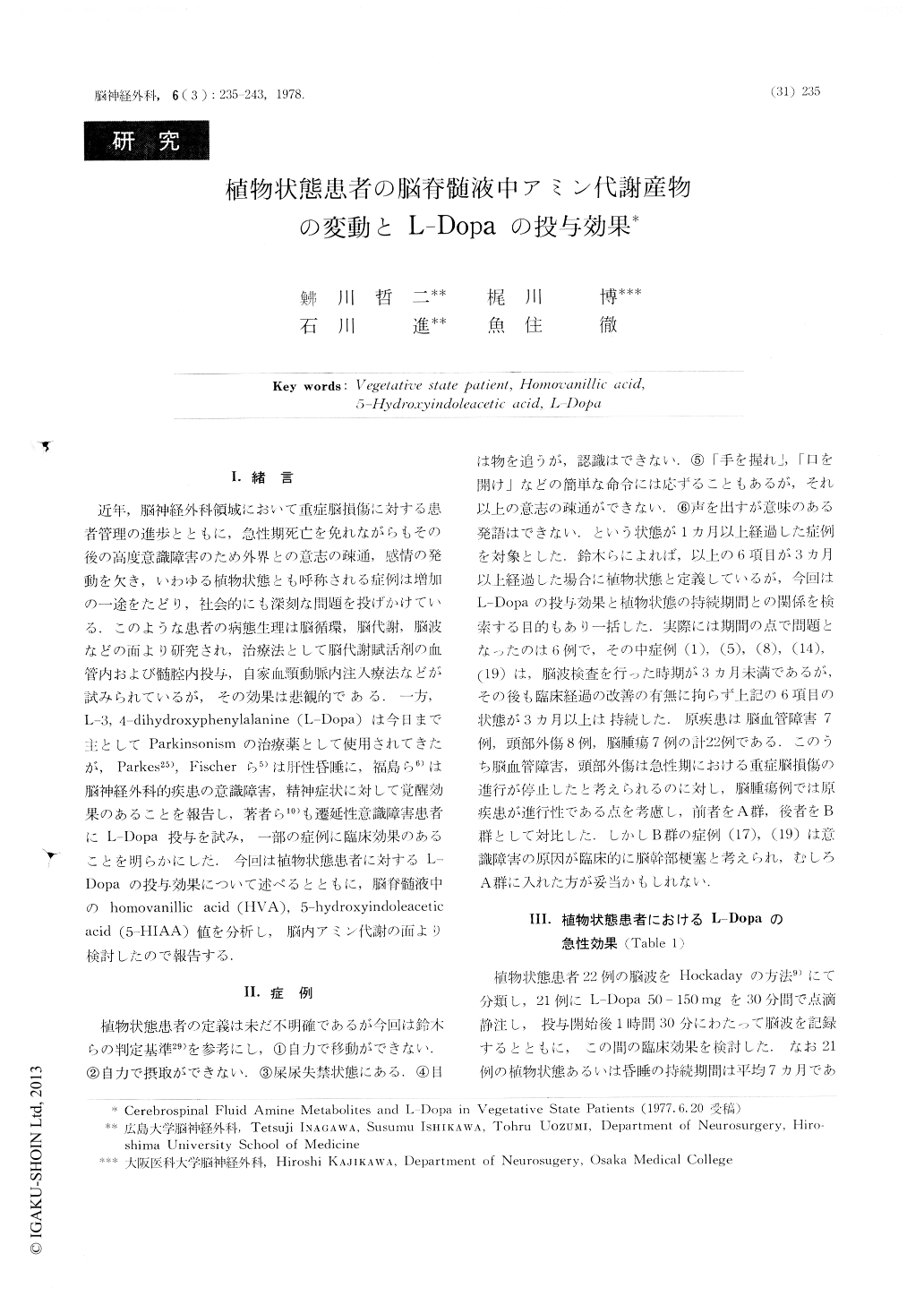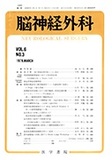Japanese
English
- 有料閲覧
- Abstract 文献概要
- 1ページ目 Look Inside
Ⅰ.緒言
近年,脳神経外科領域において重症脳損傷に対する患者管理の進歩とともに,急性期死亡を免れながらもその後の高度意識障害のため外界との意志の疎通,感情の発動を欠き,いわゆる植物状態とも呼称される症例は増加の一途をたどり,社会的にも深刻な問題を投げかけている.このような患者の病態生理は脳循環,脳代謝,脳波などの面より研究され,治療法として脳代謝賦活剤の血管内および髄腔内投与,自家血頸動脈内注入療法などが試みられているが,その効果は悲観的である.一方,L-3,4-dihydroxyphenylalanine(L-Dopa)は今日まで主としてParkinsonismの治療薬として使用されてきたが,Parkes25),Fischerら5)は肝性昏睡に,福島ら6)は脳神経外科的疾患の意識障害,精神症状に対して覚醒効果のあることを報告し,著者ら10)も遷延性意識障害患者にL-Dopa投与を試み,一部の症例に臨床効果のあることを明らかにした.今回は植物状態患者に対するL-Dopaの投与効果について述べるとともに,脳脊髄液中のhomovanillic acid(HVA),5-hydroxyindoleacetic acid(5-HIAA)値を分析し,脳内アミン代謝の面より検討したので報告する.
Twenty-two cases of vegetative state patients were analyzed for amine metabolites in CSF and investigated in the effect of L-Dopa on EEG and clinical states, in which were included 7 cases of cerebrovascular disease, 8 cases of head injury and 7 cases of brain tumor.
1) Effect of L-Dopa on EEG: Fifty to a hundred and fifty mg of L-Dopa was given by intravenous drip infusion for a 30 minute-period, and EEG was recorded for 90 minutes from the beginning of L-Dopa administration in 21 cases. An increase in frequency and a decrease of amplitude were observed in 5 cases, and 3 of them were affected with the infratentorial lesion.

Copyright © 1978, Igaku-Shoin Ltd. All rights reserved.


